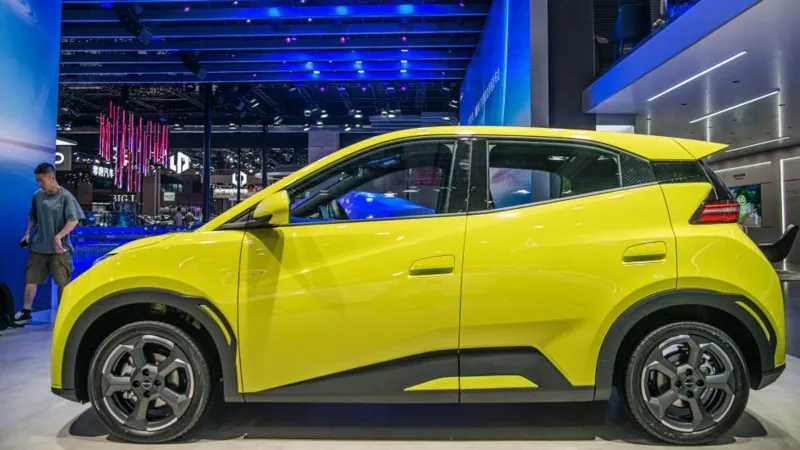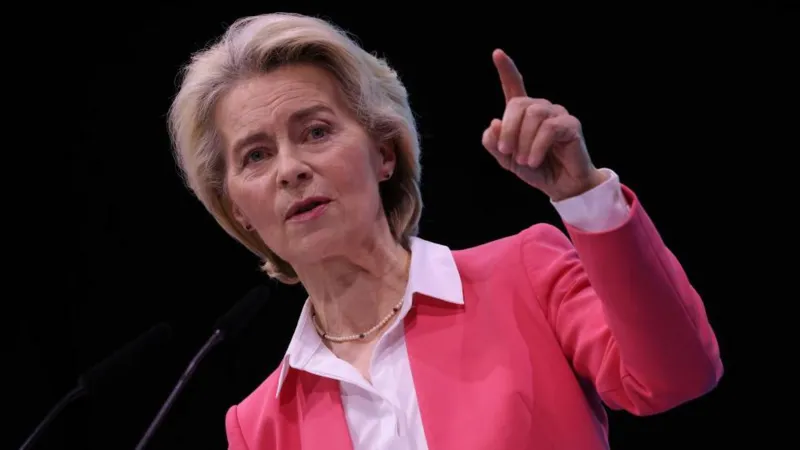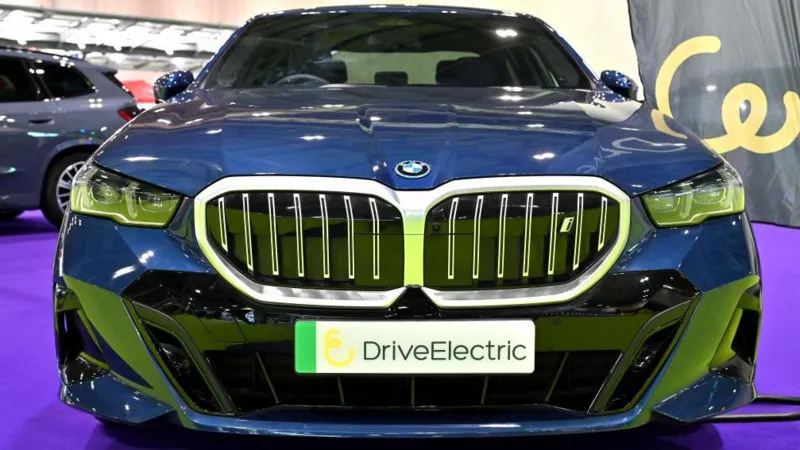
The European Union is poised to impose tariffs on Chinese electric vehicles (EVs) in response to accusations that China is selling these cars at artificially low prices, buoyed by substantial state subsidies. This decision, expected to be announced soon, is aimed at protecting European automakers who fear losing market share to cheaper Chinese models like the BYD Seagull, a compact and affordable EV.
The BYD Seagull, priced at 69,800 yuan (approximately $9,600 or £7,500) in China, could still be very affordable in Europe even if its price doubles due to safety regulations. This prospect is unsettling for European manufacturers, who see the Seagull and other Chinese models as a significant threat. The rapid growth of China’s auto industry, driven by initiatives like the “Made In China 2025” strategy, has enabled companies like BYD to compete on a global scale. Last year, China sold over eight million EVs, accounting for about 60% of the global total.
European and American policymakers are concerned about the competitive edge Chinese EV manufacturers possess. Reports, such as one by UBS, highlight that companies like BYD can produce cars at roughly 25% lower costs than their global competitors. This cost advantage is largely attributed to Chinese state subsidies, which allow these manufacturers to keep prices low. The Alliance for American Manufacturing has even warned that the influx of cheap Chinese cars could be catastrophic for the US auto industry, describing it as an “extinction-level event.”
In response, the United States has already taken stringent measures. The Biden administration recently increased tariffs on Chinese battery-powered car imports from 25% to 100%, a move condemned by Beijing as “naked protectionism.” Simultaneously, the US is providing subsidies to its domestic car industry to make American-made vehicles more competitive.
The EU, however, seems to be considering a more balanced approach. European Commission President Ursula von der Leyen announced an investigation into Chinese imports last year, citing concerns over market distortion caused by state-subsidized Chinese EVs. The preliminary findings of this investigation suggest that the EU might increase duties on Chinese EV imports to 20-25%, compared to the standard 10% for third-country imports. This move aims to neutralize the 30% cost advantage that Chinese manufacturers reportedly have.

Industry experts suggest that these tariffs would help level the playing field rather than serve as pure protectionism. However, the potential consequences for European companies are significant. For instance, BMW and Tesla, which manufacture some of their EV models in China, would face higher costs. European automakers also risk retaliatory tariffs from China on their exports, which could affect high-value models sold in the Chinese market.
Executives from major European car manufacturers have expressed reservations about the EU's approach. Volkswagen Group’s CEO Oliver Blume has warned of the potential dangers of introducing tariffs due to the risk of retaliation. Similarly, BMW’s Oliver Zipse has cautioned against trade battles, suggesting that they could backfire. Mercedes-Benz’s CEO Ola Källenius has even advocated for lower tariffs to encourage European companies to improve their competitiveness.

Despite the support for the EU’s investigation from countries like France, there is skepticism about the effectiveness of tariffs. Carlos Tavares, CEO of Stellantis, has described tariffs as a “major trap” and called for a robust European industrial policy inspired by the US and China to foster competitiveness.
The UK, observing the situation closely, may consider its own investigation into Chinese EV imports, pending a government request. Ultimately, while higher tariffs might give Europe more time to adapt to Chinese competition, industry leaders agree that long-term success will require more than just protective measures. The European automotive sector will need to innovate and improve to remain a significant global player.

















